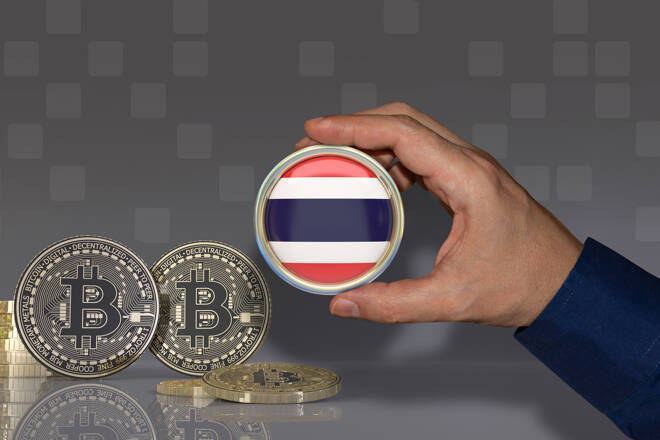Advertisement
Advertisement
Thailand’s SEC Greenlights 4 Crypto Companies Amid Zipmex Turmoil
By:
Thailand approves four crypto companies, boosting its potential to become Southeast Asia’s digital asset hub
Key Insights:
- Thailand’s regulators have granted operating licenses to Krungthai XSpring, T-BOX, Coindee and Leif Capital Asset Management.
- There are now 21 fully regulated digital asset operators in the country.
- Crypto traders on government-approved exchanges are exempt from a 7% value-added tax.
Thailand, a country with over 3.6 million cryptocurrency users, was one of the first in Southeast Asia to issue legislation that specifically addresses digital assets – opening its doors to crypto-related businesses.
In fact, the Tourism Ministry has gone as far as to outline plans to transform the country into a cryptocurrency haven for foreign travellers. In light of this, Thailand’s financial regulator has officially given the green light to several crypto firms.
License
Thailand’s Securities and Exchange Commission (SEC) has granted licenses to four more digital asset operators. These include Krungthai XSpring, a full-service brokerage linked to one of the country’s leading banks and cryptocurrency exchange T-BOX.
The other two companies that secured regulatory approval include crypto advisor and fund manager Coindee and Leif Capital Asset Management, which also manages funds. Notably, the four firms are yet to commence operations as the SEC is undertaking an inspection of their services.
This news means that there are now 21 fully regulated digital asset operators in Thailand, consisting of nine exchanges, nine brokers and three fund managers. It comes as the SEC launched an investigation into Singaporean exchange Zipmex (which also operates in Thailand) for allegedly violating trading rules by suspending withdrawals for customers last month. Shortly after, the SEC announced that Zipmex customers can submit information via an online forum on its official website.
The regulator claims that Zipmex cited inadequate reasons for suspending withdrawals and following this, the firm resumed withdrawals for some altcoins while larger assets such as Bitcoin (BTC) and Ethereum (ETH) remain frozen.
Crypto Stance
As a country where 5.2% of the total population own digital assets, Thailand was considered to have a more liberal and progressive stance post-2018 when the Digital Asset Act, which initially aimed to address security, fraud and initial coin offerings (ICO), was enacted.
Over time, regulations evolved and more recently, the government scrapped its planned 15% withholding tax on cryptocurrency transactions. The Chulalongkorn University and blockchain network Tezos also partnered to create the country’s first blockchain education and research program.
Thailand has even eased tax rules until the end of 2023 in order to boost the industry so that crypto traders on government-approved exchanges are exempt from a 7% value-added tax (VAT).
However, Thailand’s Security and Exchange Commission banned the use of crypto as a means of payment on April 1 this year, citing money laundering and financial instability concerns. The SEC stated that digital assets do not provide improved efficiency to the payments market due to their volatility and high transaction fees, but stressed that the ban is not on crypto trading – just the use of crypto for payments.
Nonetheless, Thai crypto volumes surged 600% in 2021 as the bull market was in full swing. Earlier this year, it was announced that the world’s largest crypto exchange by trading volume, Binance is seeking to re-establish itself in Thailand by launching a jointly owned Gulf Binance crypto exchange with Gulf Innova.
About the Author
Mohadesa Najumiauthor
Mohadesa Najumi is a British writer who has worked within crypto, forex, financial technology, and the stock market industry. Mohadesa received her MSc in Political Science and International Relations at the University of Amsterdam.
Advertisement
